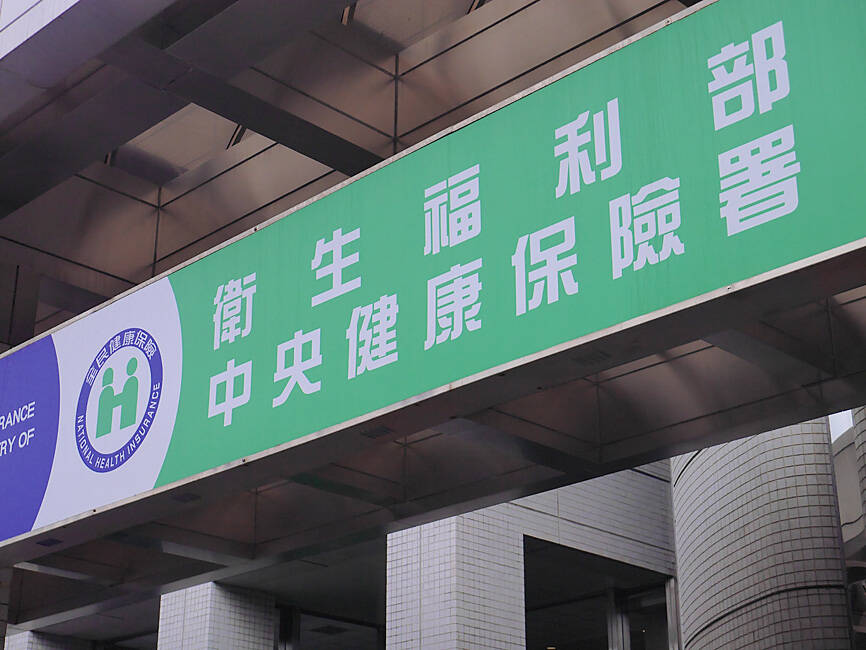Starting in August, the National Health Insurance (NHI) system would cover a drug for spinal muscular atrophy (SMA) for infants under six months old, National Health Insurance Administration (NHIA) Deputy Director-General Tsai Shu-ling (蔡淑鈴) said.
SMA is a rare neuromuscular genetic disease that affects the central nervous system, peripheral nervous system and voluntary muscle movements in patients, which results in degeneration of muscles in limbs and respiratory organs.
The one-time gene therapy drug, sold under the brand name Zolgensma, has a list price of US$2.1 million in the US.

Photo: Taipei Times file
However, the NHIA has negotiated the price down to NT$49 million (US$1.58 million) per dose, Tsai said.
It would be the first time the NHI has covered a gene therapy, Tsai said.
About eight children in Taiwan would benefit from the new policy every year, she said.
While the drug has proven effective among patients over a broader age range and has lifelong effects, its prohibitive cost has led the NHIA to initially make it only available for infants aged up to six months old, who have shown the most promising response to treatment, Tsai said.
However, she said it is difficult to guarantee that the medicine would have “lifelong” effects, as it is a new drug and follow-up checks with patients have been conducted for only the past eight years.
The NHIA would track the progress of Taiwanese who receive the drug and review cases from other countries to determine whether coverage should be expanded to other age groups, Tsai said.
Other SMA treatments include a spinal injection called Spinraza and a liquid oral medication called Evrysdi, both of which are covered by the NHI for children aged up to three years old, she said.
Patients older than three have to undergo revised upper limb module assessment, a test designed to determine the upper limb functions in SMA patients to see whether they are eligible for therapies covered by the NHI system, she added.
Tsai said she hopes the NHI’s coverage of therapies for the condition would benefit at least half of the 400 people with SMA in Taiwan.

Costa Rica sent a group of intelligence officials to Taiwan for a short-term training program, the first time the Central American country has done so since the countries ended official diplomatic relations in 2007, a Costa Rican media outlet reported last week. Five officials from the Costa Rican Directorate of Intelligence and Security last month spent 23 days in Taipei undergoing a series of training sessions focused on national security, La Nacion reported on Friday, quoting unnamed sources. The Costa Rican government has not confirmed the report. The Chinese embassy in Costa Rica protested the news, saying in a statement issued the same

Temperatures in New Taipei City’s Sindian District (新店) climbed past 37°C yesterday, as the Central Weather Administration (CWA) issued heat alerts for 16 municipalities, warning the public of intense heat expected across Taiwan. The hottest location in Taiwan was in Sindian, where the mercury reached 37.5°C at about 2pm, according to CWA data. Taipei’s Shilin District (士林) recorded a temperature of 37.4°C at noon, Taitung County’s Jinfeng Township (金峰) at 12:50 pm logged a temperature of 37.4°C and Miaoli County’s Toufen Township (頭份) reached 36.7°C at 11:40am, the CWA said. The weather agency yesterday issued a yellow level information notice for Taipei, New

Taiwan’s Liu Ming-i, right, who also goes by the name Ray Liu, poses with a Chinese Taipei flag after winning the gold medal in the men’s physique 170cm competition at the International Fitness and Bodybuilding Federation Asian Championship in Ajman, United Arab Emirates, yesterday.

A year-long renovation of Taipei’s Bangka Park (艋舺公園) began yesterday, as city workers fenced off the site and cleared out belongings left by homeless residents who had been living there. Despite protests from displaced residents, a city official defended the government’s relocation efforts, saying transitional housing has been offered. The renovation of the park in Taipei’s Wanhua District (萬華), near Longshan Temple (龍山寺), began at 9am yesterday, as about 20 homeless people packed their belongings and left after being asked to move by city personnel. Among them was a 90-year-old woman surnamed Wang (王), who last week said that she had no plans